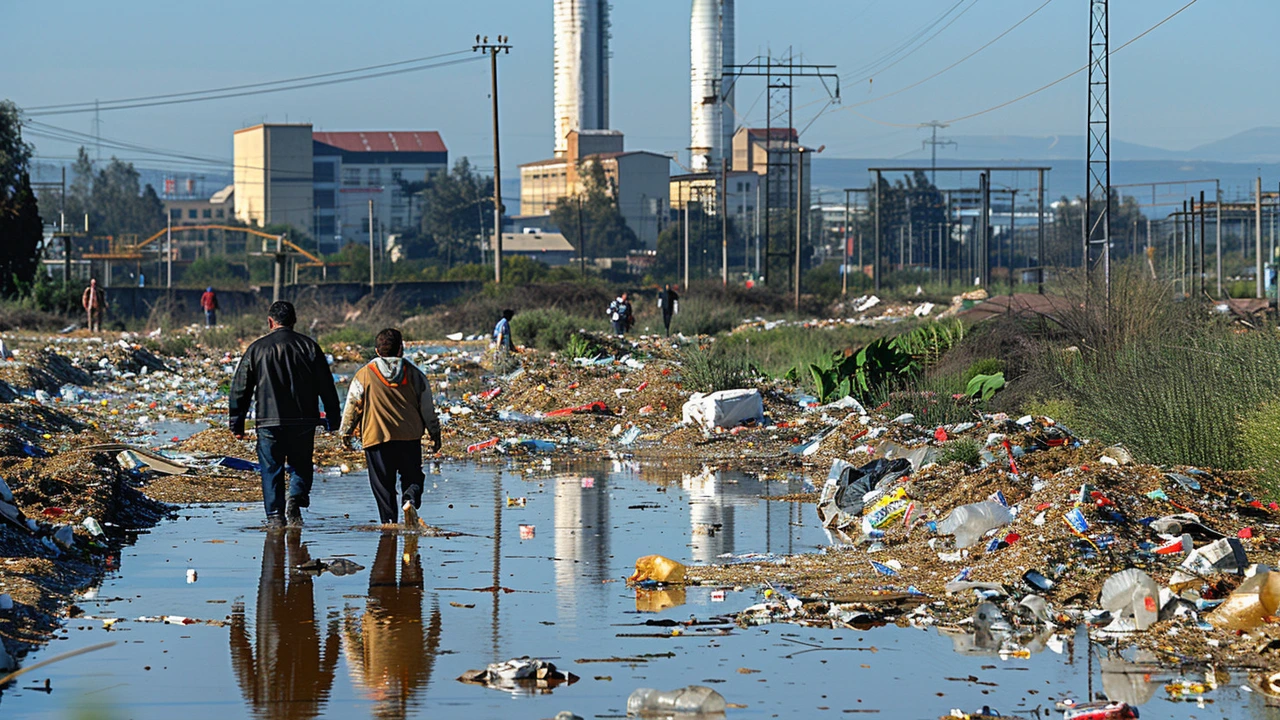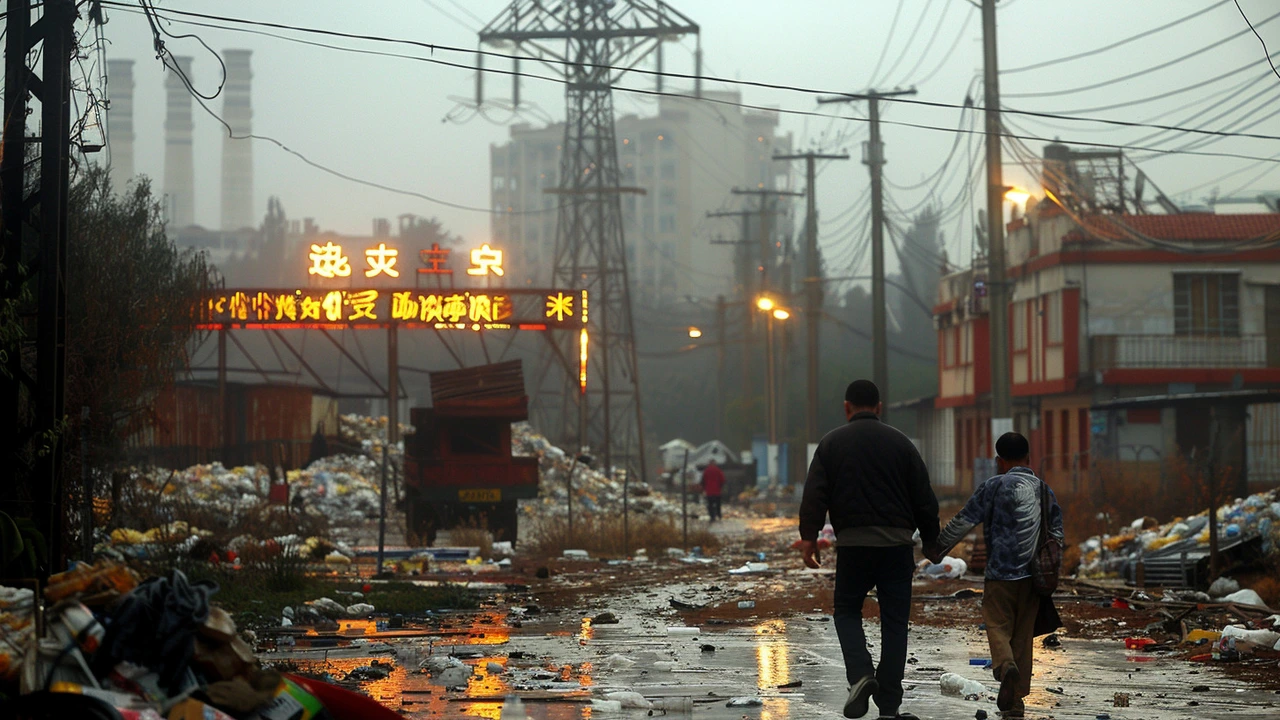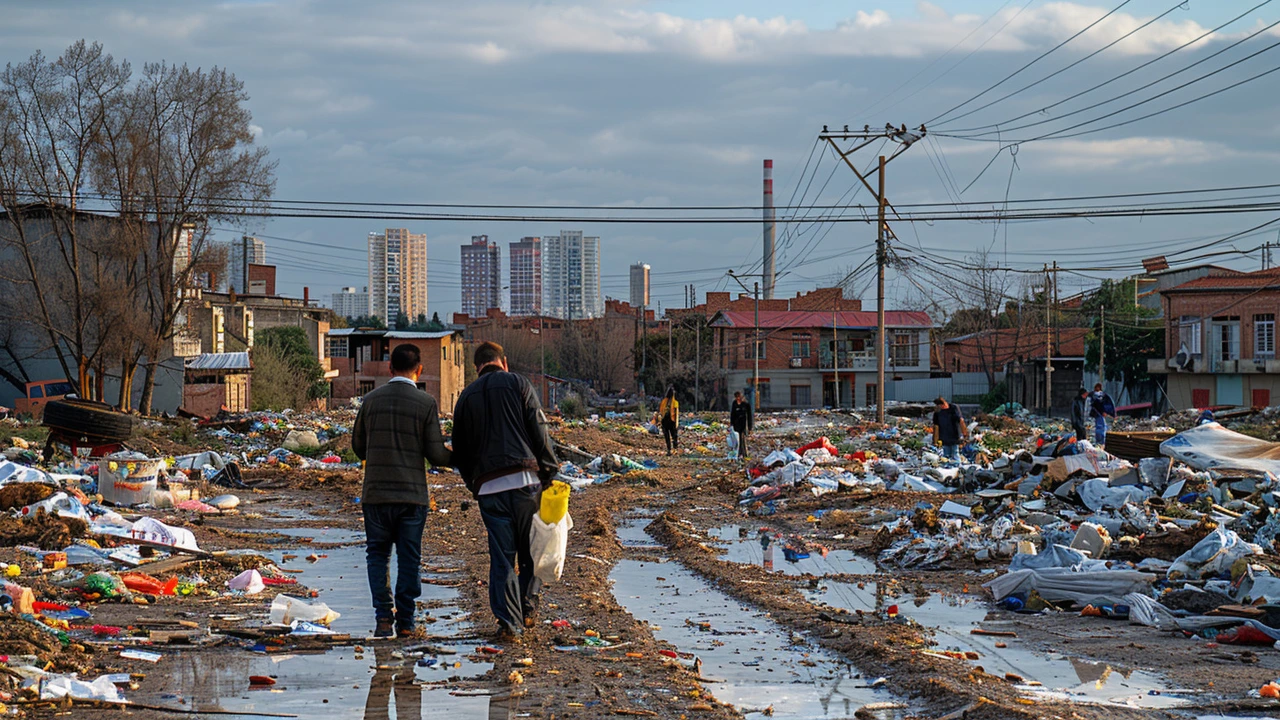A Grim Outlook for Argentina's Small and Medium Enterprises
The new economic policies implemented by President Javier Milei are painting a bleak future for Argentina's small and medium enterprises (SMEs). According to a recent report from the Argentine Confederation of Medium-Sized Companies (CAME), retail sales plummeted by 7.3% year-on-year for the month of May 2024. This is just one indicator of the increasingly challenging landscape these businesses confront. With a cumulative contraction of 16.2% in retail sales over the first five months of the year, it's clear that SMEs are navigating through turbulent waters.
The Retail Sales Index for SMEs, a vital barometer of economic health in this sector, reflected significant setbacks throughout early 2024. January witnessed a staggering 28.5% decline, followed by February and March with 25.5% and 12.6% drops, respectively. These figures, while stark on their own, aggregate to tell a story of severe economic strain. The policies set out by the current administration have largely been attributed to this downturn, as they have significantly reduced the purchasing power of the average Argentine, complicating the already strenuous journey of SMEs.
Challenges Galore
Among the plethora of issues that SMEs are facing, three primary challenges have emerged: a lack of sales, exorbitant logistical costs, and severe collection problems. On the ground, these manifest as empty shops, warehouses filled with unsold goods, and a gnawing uncertainty about the future. Chain reactions from these issues also impact employment rates in these businesses, affecting many families who depend on these jobs for their livelihoods. While the sectors of footwear and textiles and apparel have seen a modest increase in sales, they are the exceptions in an otherwise depressing retail landscape.
A Sector in Decline
In stark contrast to these minor upticks, sectors such as food and beverages, pharmaceuticals, and construction materials have suffered significant sales declines. This is concerning given that these sectors are generally considered essential and less prone to fluctuation. When consumption in food and beverages drops, it indicates a significant cutback in basic needs, affecting overall economic stability. Similarly, the pharmaceutical sector's downturn reflects decreased accessibility to essential medications, impacting public health alongside financial health. The downturn in construction materials sales suggests a stalling of infrastructure projects, further stressing the already fragile economy.

Projection: A More Dire Situation Ahead
The outlook for the coming months is not optimistic either. A survey conducted by Industriales Pymes Argentinos (IPA) indicates that the situation for SMEs is expected to worsen over the next year. According to the survey, a staggering 31% of SMEs describe their current condition as 'very bad', and another 38% as 'bad'. The bleak perception of their economic environment is a clear indicator that businesses are bracing for harder times ahead.
The Argentine Chamber of Commerce and Services (CAC) also noted a 4.5% year-on-year consumption drop for April. This is a worrying statistic that further underscores the financial struggles faced by local businesses. The restaurant sector, in particular, has been hit hard. Prominent restaurant owners like Ariel Amoroso and Pablo Bangardino have reported a sharp year-on-year drop in consumption, with some establishments seeing decreases as high as 30%. This downturn has led many restaurant owners to take drastic measures to stay afloat, such as cutting down staff and hours of operation.
Impact on Daily Life and Future Prospects
The impact of this economic strain extends beyond just businesses. Families relying on SMEs for their income are experiencing the ripple effects. With businesses cutting down hours and laying off employees, households are forced to tighten their belts even further. The psychological stress of economic instability cannot be understated, adding another layer of complexity to an already dire situation.
While a few sectors have managed to tread water better than others, the general trend suggests that without significant policy shifts and economic relief measures, the future of SMEs in Argentina will continue to be gloomy. Business owners are calling for intervention and support to navigate out of this crisis, emphasizing the need for reduced logistical costs and improved financial collection systems.

Government Response
As the government grapples with these economic challenges, their response will be critical in determining the future trajectory of the country’s SMEs. President Milei's administration has yet to announce comprehensive plans to address these issues head-on. Critics argue that without immediate and effective measures, SMEs, which form the backbone of the Argentine economy, may struggle to survive, leading to broader economic consequences.
This story of economic woe is reflective of the larger global challenges faced by SMEs today. The success of these enterprises is integral not only to individual livelihoods but to the economic fabric of countries worldwide. Argentina's situation serves as a cautionary tale, highlighting the delicate balance required in economic policy to sustain and nurture small and medium businesses.
In conclusion, the future of Argentine SMEs looks precarious under the current economic policies. With retail sales plummeting, and no immediate relief in sight, business owners and employees find themselves in a challenging and uncertain situation. The path ahead requires robust and targeted economic interventions to alleviate the struggles faced by this vital sector of the economy.

Write a comment